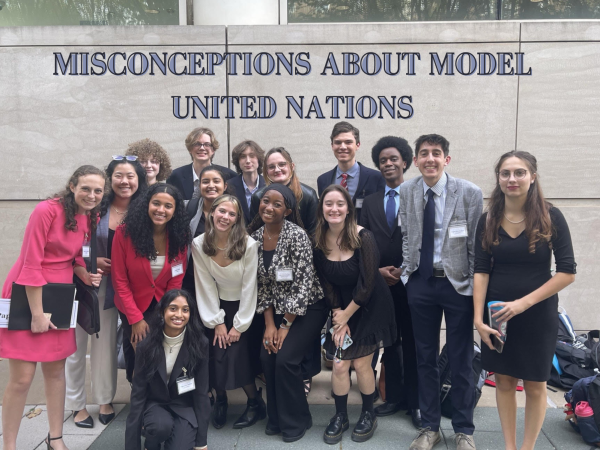Freedom isn’t free in Indiana’s discriminatory Religious Freedom Law
April 30, 2015
Indiana’s Religious Freedom Law possesses different connotations for different people. Some citizens view the act as protection for their religion and beliefs. Others see the law as another way to legally implement microaggressions against the LGBT community. While its intentions remain unclear, Indiana’s Religious Freedom Law has led to more blatant discrimination against LGBT people.
The LGBT community possesses a long history of discrimination in the United States. Indiana’s Religious Freedom Law, however, gives a new face to homophobia within our country. Despite the state’s marriage equality law, Indiana businesses can now legally deny service to LGBT people. While the situation holds no candle to discrimination in the early twentieth century, Indiana’s new law brings echoes of discrimination from that time.
In March, Indiana’s state legislature introduced ACT No. 101, more commonly called Indiana’s Religious Freedom Law. The new law adds information and clauses to the religious freedom our country already ensures through the constitution. This act states, “‘exercise of religion’ includes any exercise of religion, whether or not compelled by, or central to, a system of religious belief.” For the full text of the law, reference this link. Indiana’s new act claims to restore religious freedom, but the law appears to just further inequality in with the state.
While religious freedoms remain important in our society, it cannot come at the cost of discrimination. Everyone’s right to worship or believe in their version of God remains intact. Many of Indiana’s citizens, however, seem to believe the exact opposite of this. Many citizens claim denying service to LGBT people falls under their right to religious freedom. By telling them they must provide service to LGBT people, their religious freedom supposedly becomes compromised.
Whether Indiana’s Religious Freedom Law intended this effect or not, the law supports these people’s claims. Under the new law, businesses legally possess the right to deny anyone service because of their religious beliefs.
Did we not already pass this part of history? Open and legal discrimination like this supposedly ended over 50 years ago. Yet in 2015, we see states creating laws meant to allow inequality and prejudice. In this modern day and age, we cannot continue to tolerate blatant discrimination of minority groups.

















